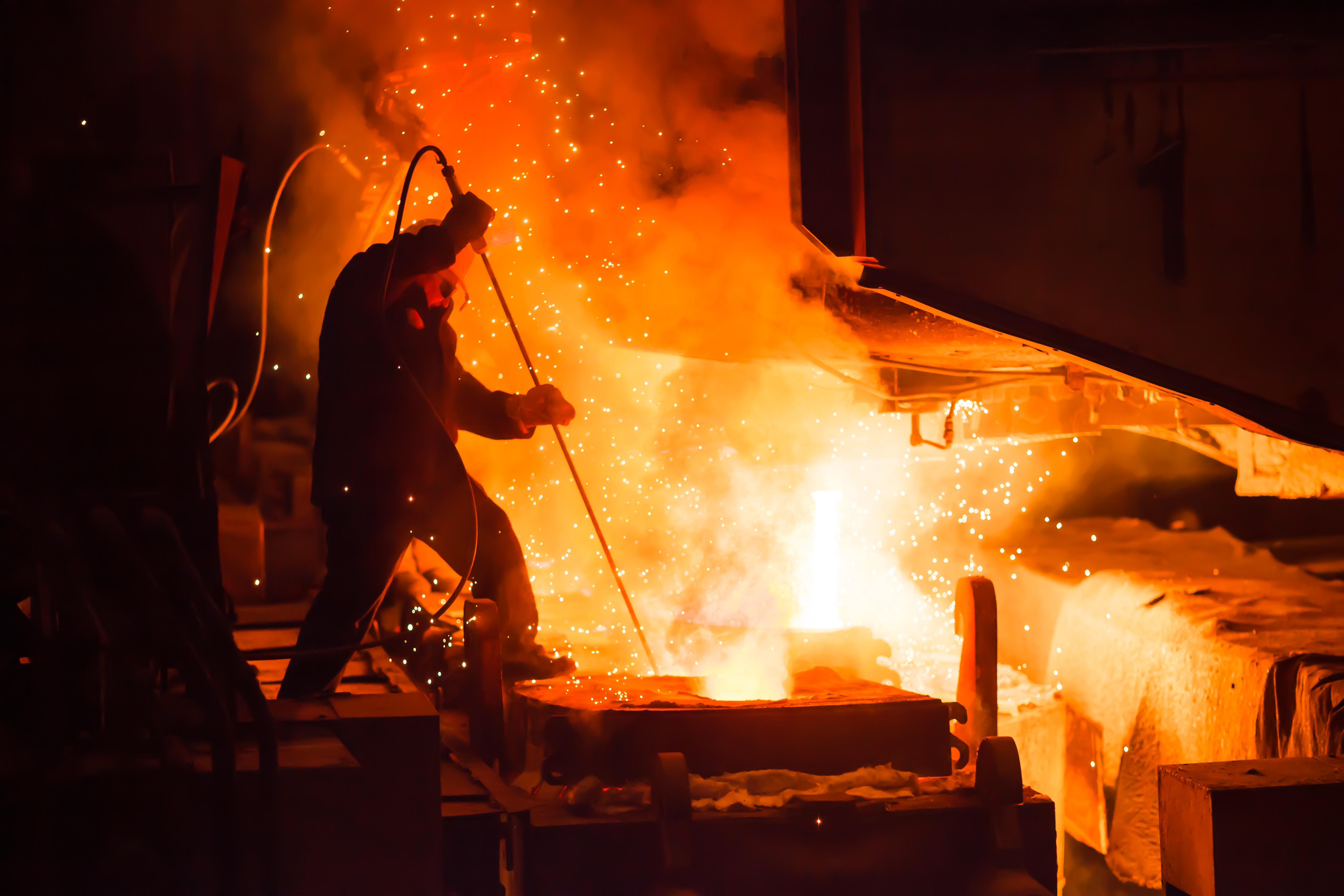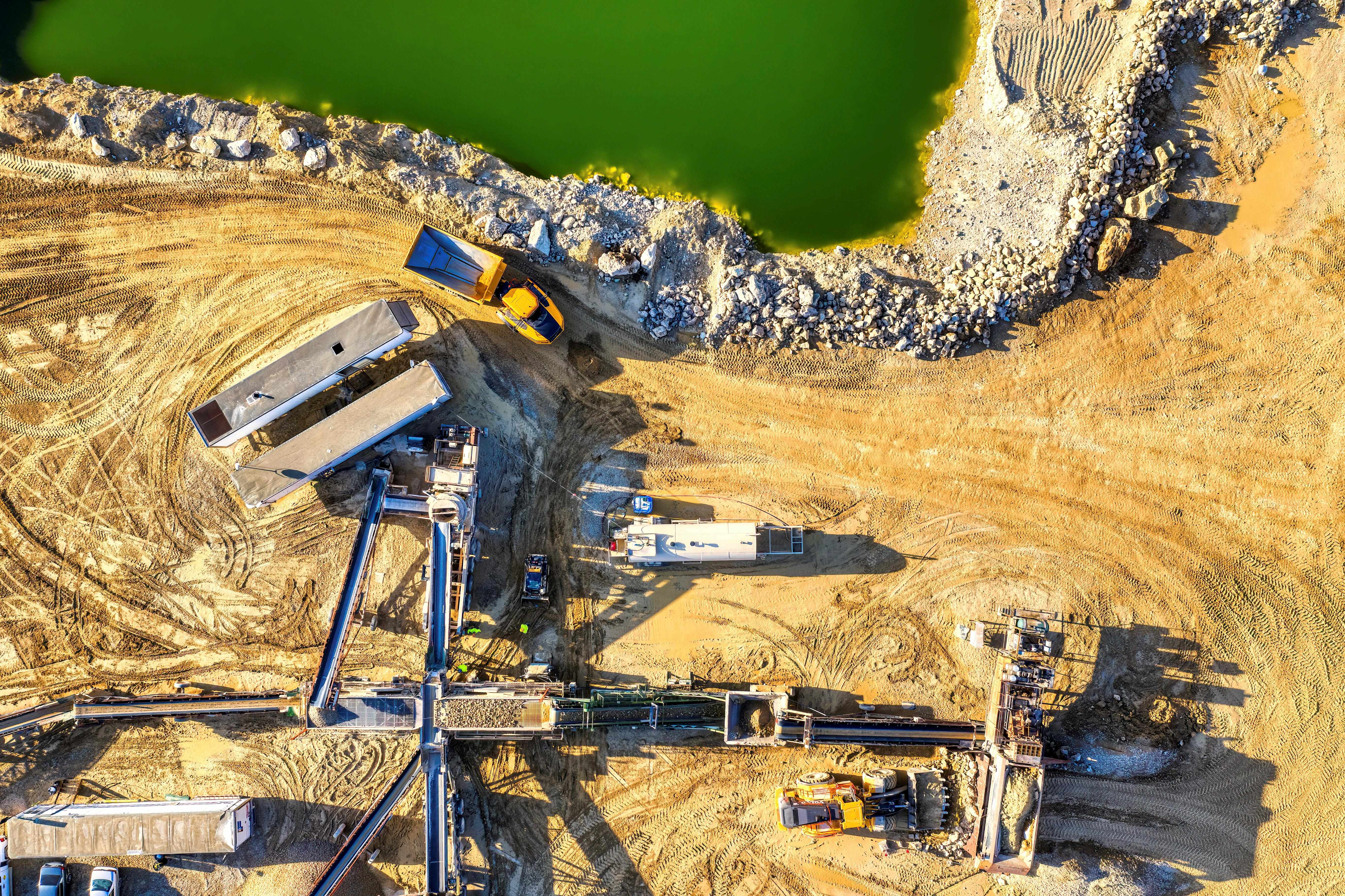We’re shaping a more responsible steel industry.
We have the opportunity to do things differently
ResponsibleSteel is a global, not-for-profit organisation created to maximise steel’s contribution to a sustainable world. Working collaboratively with our members, we have developed an independent standards and certification programme for steel via a process that aims to align with the ISEAL Codes of Good Practice. Together, we are setting the global standard for responsibly produced net-zero steel.

We’re at a pivotal moment in the steel industry
According to ResponsibleSteel's calculations using data from RMI and the International Energy Agency (IEA), the steelmaking process, from the extraction of raw materials to the production of steel, accounts for 10% of global GHG emissions. We face a collective challenge to transform the industry, reducing global emissions while ensuring a just transition for workers and local communities.
We have over 150 members working to deliver on our mission to drive responsible steel production.
According to the IEA's Net Zero Emissions Scenario, we need to reduce steel industry emissions by at least 90% by 2050, compared to 2022.
We have over 80 ResponsibleSteel certified sites globally, producing over 130 million tonnes of steel annually.
Over 230,000 workers are covered by ResponsibleSteel site certification.
Around 40% of ResponsibleSteel certified sites producing crude steel use EAFs.
This is the future of steel
Our members are at the heart of our work
ResponsibleSteel’s membership consists of representatives from across the steel value chain, including businesses, NGOs, trade associations, and other organisations with an interest in our mission. This means our standards are uniquely shaped by multiple perspectives, and their adoption requires the support of both business and civil society members. We encourage organisations globally to join us to create lasting impact for people and the planet.














.png)



















.png)





Certified sites around the world

Latest news & events


Certification is key to ensuring that steel doesn’t cost the Earth
In today’s unpredictable world, one constant remains: the challenge of climate change. And at its centre sits the energy challenge.
We might think of this as the race to convert our power grids to wind and solar, and ensure our future cities, industries and transport rely on clean energy systems. But equally, the foundations of this transformation lie in the very materials these things will be made from: steel, concrete, glass and aluminium. These are the energy-hungry lions – and steel is among the hungriest. It alone makes up 10% of the world’s energy-based greenhouse gas (GHG) emissions. If steel were a country, it would be the fourth-largest emitting nation.
Which means steel producers and consumers alike are under pressure to decarbonise, at speed and at scale. The International Energy Agency (IEA) calculates that the industry needs to reduce its emissions by 90% across the board if it’s to stay on track for 1.5 degrees.
ResponsibleSteel CEO Annie Heaton and Climate Group CEO Helen Clarkson write for Reuters on how certification against an international standard is key to driving steel industry progress toward net zero. Read the full op-ed here.


What does a just transition look like? Exploring the role of standards in steel and mining to drive a responsible transition
Decarbonisation will radically reshape heavy industries, generating technological, geographical, economic, and social changes. For example, shifting from coal-based processes to green technologies like hydrogen and electrification could have profound financial and logistical implications—increased manufacturing costs, new input materials, stranded assets, production relocation, and more.
Significantly, decarbonisation could also have adverse social impacts such as causing job loss or displacement and weakening the economic viability of affected communities. ResponsibleSteel and the Initiative for Responsible Mining Assurance (IRMA) have launched a joint project to better understand the social impacts of the net-zero transition and how standards can help guide good practice. With funding from the ISEAL Alliance, the project focuses on steel and mining as two examples of hard-to-abate sectors in the metals industry which are deeply connected.
The project aims to:
1. Identify the role standards can play toward a socially responsible transition.
2. Establish an agreed approach, framework or set of principles to take forward.
The first stage of the project involves in-depth research to answer key questions: What constitutes a just transition? How are the steel and mining sectors already working to ensure a just transition? How are existing standard systems such as ResponsibleSteel working to address issues around a just transition?
The reality of a just transition is complex, taking into consideration different geographies and site levels. This project will harness early examples of successful transitions, looking at where standards have played a valuable role and providing what is likely to be some of the first guidance on tackling this challenge. Given the varying impacts of decarbonisation across regions, IRMA and ResponsibleSteel are uniquely positioned to provide frameworks that apply to these regional contexts.
The project will identify key issues, map how international standards can address them, identify critical gaps, and signpost future work needed to address them. The findings will be tested through engagement with workers, unions, business leaders, and other key stakeholders. Ultimately, the project will identify an agreed approach for the role of standards in advancing a just transition for workers in the steel and mining sectors. The project outcome will be shared with the ISEAL community and broader stakeholders.
If you are interested in participating in the project, please contact our Standards Manager, Haruko Horii.
.jpg)

ResponsibleSteel recognises the Copper Mark as an input material programme for Progress Levels 1 to 3 of the International Production Standard
The steel sector relies heavily on mined and processed minerals as an input to production processes. To help ensure that steel companies can increasingly source minerals from responsible suppliers, ResponsibleSteel recognises input material programmes that are well placed to credibly verify the ESG performance of suppliers.
The Copper Mark is the leading assurance framework for the responsible production of Copper, Molybdenum, Nickel, and Zinc, with the latter three being important contributors to the steel value chain.
The Copper Mark submitted a self-assessment of their Risk Readiness Assessment (RRA 3.0) in December 2023 for recognition against the ResponsibleSteel International Production Standard. Following a public consultation and additional improvements, the Copper Mark is now a recognised programme for Progress Levels 1, 2 and 3 of Principle 3’s responsible sourcing requirements. It is the fourth programme to achieve recognition by ResponsibleSteel.
Annie Heaton, CEO of ResponsibleSteel commented, “A product’s sustainability goes far beyond the boundary of the site where it is produced. It’s imperative not only that steelmakers are operating responsibly but that they are also able to source input materials responsibly. That means seeking credible verification that the metals and ores they are buying come from mines subject to the same principles as they demonstrate with ResponsibleSteel. Recognising the Copper Mark as the fourth input programme under Principle 3 of our Production Standard will go a long way in supporting steelmakers looking to source zinc, molybdenum and nickel from suppliers complying with rigorous ESG standards, and we’re delighted to welcome them into the ResponsibleSteel ecosystem.”
“We welcome this recognition as it will help buyers of zinc, molybdenum and nickel materials on the journey towards Certified Steel. It marks another step in making the standards and assurance landscape collaborative and supporting continuous improvement across the supply chain”, said Michèle Brülhart, Executive Director at the Copper Mark.
Find out more about the Copper Mark here or learn more about ResponsibleSteel’s recognition process here.





